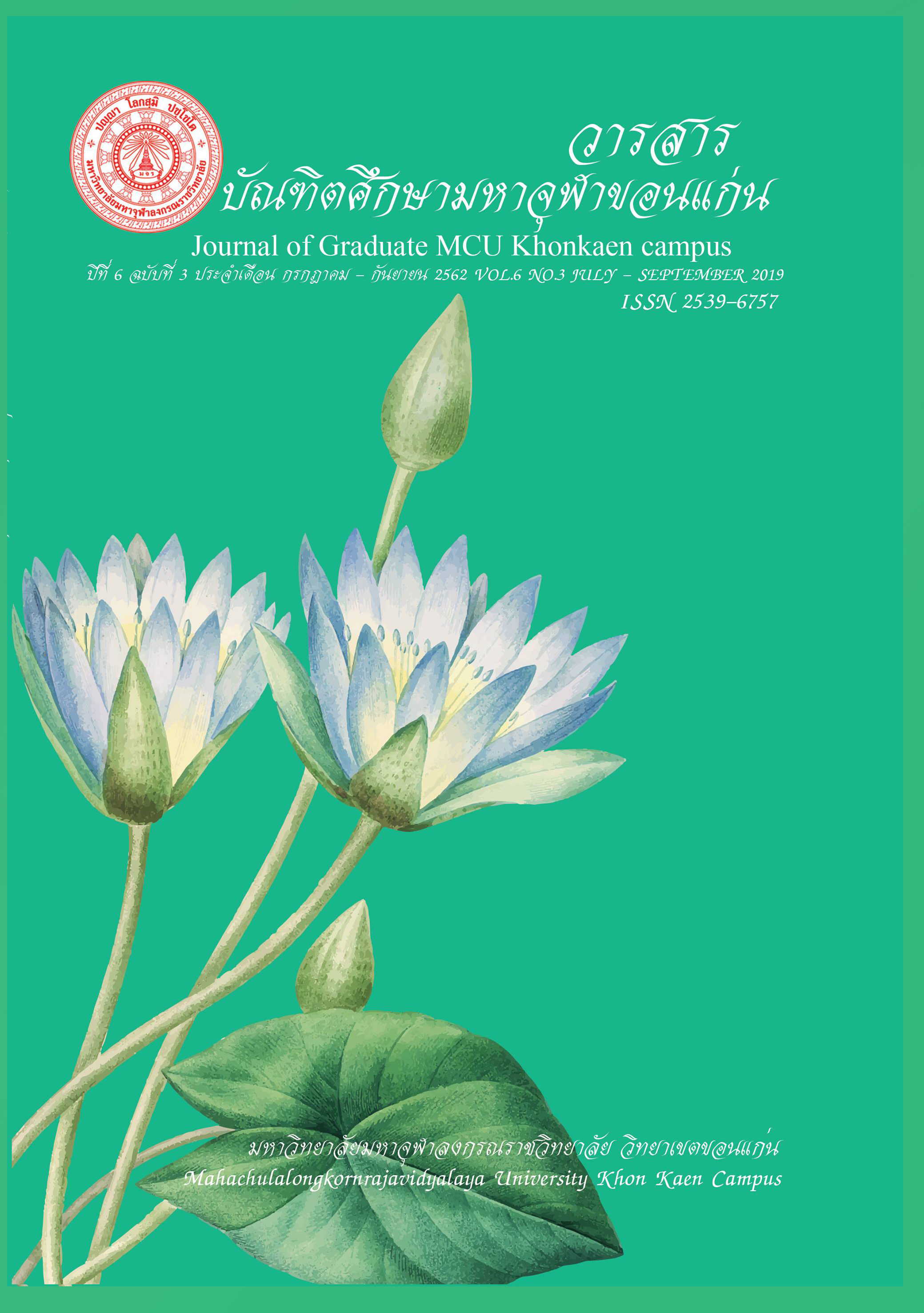Literacy and Environmentally Ethical Behaviors of Secondary School Students in China
Main Article Content
Abstract
ABSTRACT
This study was conducted with the aim of exploring the roles of managing teaching in secondary schools in China, studying the literacy and environmentally ethical behaviors of secondary school students in China and comparison the environmentally ethical behavior classified by factors of 280 secondary school students in China. Data was collected with questionnaires and analyzed with descriptive statistics and independent t-test.The findings revealed that 84.3 percent of the students were dissatisfied with the environment of Kunming, China, while 55.0 percent of the studentsmost frequently considered water pollution to be a problem. Most of the schools (77.5%) organized lessons about environmental conservation, while nearly all of the students (95.4%) had a high degree of environmental literacy and 87.1 percent has moderate environmentally ethical behavior. Furthermore, the students most frequently engaged in water conservation behavior. Concerning the environmentally ethical behavior classified by factorsethical behaviors of the students, the findings indicate that the students had had three years of experience at the school. The mean score for environmentally ethical behavior among the 2-year+ students was higher than that of the students with 1-2 years of experience at the school(p-value = 0.002). The students who studied at larger schools had higher mean environmentally ethical behavior scores than the students at medium or small schools (p-value <0.05). Regularly building knowledge and understanding about the environment for students with focus on presenting the impacts of environmental destruction can raise awareness about environmental problems among the students.
Article Details
References
Cheatea, M. (2013). Affecting Factors on Environmental Conservation in School: A case Study of Students in Secondary School of Thamvitya Foundation School Yala (Master’s thesis). National Institute of Development Administration. Bangkok.
Chien-Yun, C., Wan-Fei, C., Yu-Hsi, Y., & Chia-Hung, Y. (2012). A Study on Modification of Knowledge, Attitude and Practice on Vocational High School Electronics Courses Integrated with Nanotechnology Concept. International Journal of Thermal & Environmental Engineering, 4(1): 73-79.
Chotipong, O. (2018). Air pollution problems in China. Environmental Journal, 22(1), 54-63.
Environmental Protection. (2017). Real story of environmental problems in China that the world doesn't know.Retrieved November 5, 2018, from http://www.chie-no-wa.com
Greenpeace International. (2011).Hidden results: Damage from industrial pollution to water resources, world population and benefits. Retrieved October 14, 2018, from https://www.greenpeace.org/seasia/th/Global/seasia/report/2011/hidden-consequences.pdf
Jaiyen, K. (2013). River Conservation Behavior of 9th Grade Student School near Thachin River. Veridian E-Journal, 6(2), 665-680.
Jankaew, K. (1982).Environmental education principles.Bangkok: Kasetsart University.
Kil, N., S.M. Holland. & T.V. Stein. (2014). Structural relationships between environmental attitudes, recreation motivations, and environmentally responsible behaviors. Journal of Outdoor Recreation and Tourism; 7(8): 16-25.
Manager Online. (2009). Industrial capitalism creates more suffering than happiness. Retrieved October 14, 2017, from http://www.manager.co.th
Naipinit, A., Kroeksakul, P. &Sakolnakorn, P.N. (2014). Adjustment under Globalization. SKRU Academic Journal, 7(1), 1-11.
Sathisakul, N.&Boonsue, A. (2015). Effects of Experiential Activities based on Science-Technology Society-Environmental Approach on Preschool Children’s Environmental Conversation Behaviors. OJED, 10(3), 601-613.
Satiman, W. (2010). Capitalism globalization: The disciplines possessed by the hands of anybody. Retrieved October 14, 2018, from https://www.gotoknow.org/posts/326372
Wu, Y. (2002). On relationship between environment protection and patriotism. Retrieved October 25, 2018, from http://www.wanfangdata.com.cn/details/detail.do?_type=perio&id=hncjgdzkxxxb200204011
Zhang, H. (2017). The Environmental Consciousness of Junior High School Biology Teaching Research.Retrieved November 1, 2018, from http://cdmd.cnki.com.cn/Article/CDMD-10231-1018024651.htm

